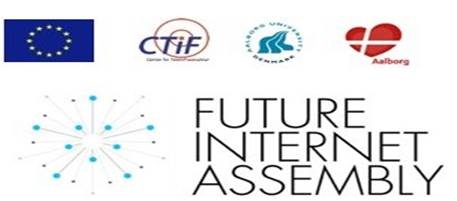This report summarizes the discussions that
took place in Aalborg, during the SESERV focus group on the impact of premium
interconnection services to the gaming industry.
Similarly to the third focus group during the Athens workshop, the purpose was to invite Future Internet stakeholders to discuss about frameworks that enrich the current best-effort Internet by allowing ISPs to collaborate during service management and establish QoS-aware network services. In particular, participants were asked to express their views on socio-economic challenges that would appear, if a particular technology proposed by the ETICS research project was candidate for adoption. The ultimate purpose is to understand major stakeholders' interests that should be taken into account by members of the ETICS project at the design phase, so that tussles can be played-out "successfully" at run-time. The following themes (text in bold) have been recognized. Special attention has been given in understanding the incentives of the stakeholders and providing a sketch of the tussles’ evolution (text in italics).
‘Small’ Content Owners: Keep Internet a neutral playing field, no QoS is necessary! QoS discrimination in the Internet would harm low-budget content owners and especially those from small countries, who can’t compete those coming from large homogenous markets, like the US, even if the product quality were superior. Allowing dominant [US] players get differentiated services is a very dangerous approach for the future of the European gaming industry. Maybe this concern would disappear if users, only, could ask and pay for premium network services. But, most users don’t care about the technical details of the service; they are interested in getting good experience. So, they probably are not going to pay separately for accessing a gaming server and having premium connectivity. Maybe, this problem could be solved if gaming providers were transferring payments to facilitators.
Connectivity Providers: Net neutrality laws could result in multiple Internets Treating packets differently is not allowed in countries, such as Holland, where a net neutrality law is in place. The only way for an ISP to offer guaranteed QoS is to build a dedicated network for premium services. Then the most important question is whether there is enough demand to justify the necessary investments and operational costs. Probably, in case of multiple Internets, regulators would have to ensure that Best-Effort infrastructures are upgraded, as well.
Technology Makers: New technologies will keep emerging even if ISPs offer guaranteed QoS Researchers and technology makers try to develop technologies for pursuing their own objectives. The dominant factor for gamer experience is latency and, since the means to measure it already exist, new techniques can emerge that will users get a satisfactory QoE without paying for premium services. Relying on overlay applications and information service providers to solve a networking problem, the lack of QoS, can be inefficient and less effective because one provider’s actions can be cancelled out by actions of another provider. Probably, cross-layer mechanisms that allow ISPs and ASPs to cooperatively influence some aspects of the network aspects can provide a more stable solution.
|
FISE Conversation >

